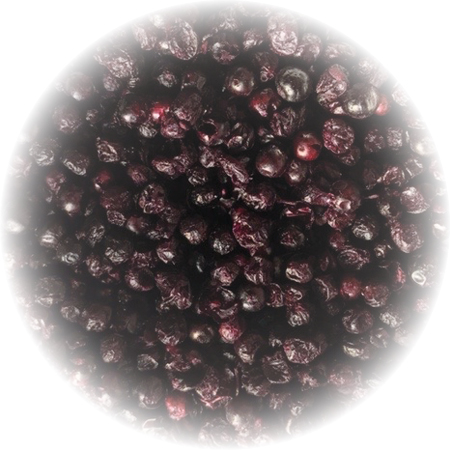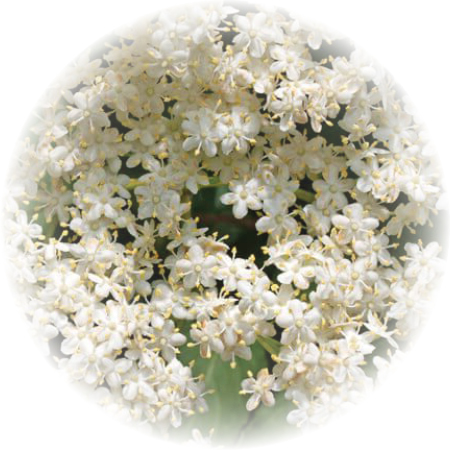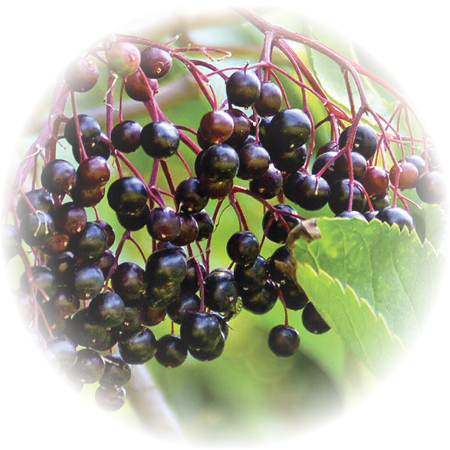Elderberries, Whole (Sambucus nigra) – Dried Herb, Organic
$22.28 – $222.80
Sambucus nigra is a perennial shrub in the Adoxaceae family, which is commonly known as Moschatel family, and is a small family of flowering plants consisting of about 150–200 species. Black Elderberry, like many in the Adoxaceae, are native to most of Europe and North America. Common names include Elder, Elderberry, Black Elder and European Black Elderberry. The Latin specific nigra means “black” and refers to the deeply dark colour of the berries.
Black Elderberry grows in large areas of North America, including east of the Rocky Mountains and south to Bolivia. Seeds found in Switzerland Neolithic pole-dwellings hint that Elderberry was cultivated as early as 2000 BCE and written history. Hippocrates and Pliny the Elder both noted Elderberry’s medicinal properties. Elder is cited as a poisonous plant for mammals and humans because the seeds, stems, leaves and roots contain a cyanide-inducing glycoside. Cooking the berries destroys the glycosides present in the seeds, making the berries with their seeds safe to eat. The use for fire is how the elderberry received its name ‘Elder’, which comes from the Anglo-Saxon world ‘ellen’ meaning fire-kindler or the word ‘aeld’ meaning to kindle, since the hollow stems were used to blow air into a fire.
Among pagan traditions the Elder tree was hung in buildings for protection and the sprigs used on graves to aid the transition from life to death. The wood was used in instrument-making because the pithy interior can be taken out to create flutes. A sacred blow pipe was mas made from the Elder to blow special energies into herbal healing formulas by Creek, Cherokee, Mikasuki and Seminole Native Americans. Many Native American nations have reported extensive knowledge on uses for various parts of Elder tree, including Elder Flower infusions for fever, bark infusions for sores, eczema, as poultice or wash. Fermented berries have been used as a tonic to alleviate neuritis and rheumatism.
Dried leaves spread around home for insecticide. Both the flowers and the berries have a long tradition of culinary use in European medicine, primarily for winter cordials, preserves, syrup, infusions, pies and wine. Europeans used elderberries and flowers for washing one’s face for beauty,
Elderflower has been used for swollen sinuses (sinusitis), colds, influenza (flu), bronchitis and as a diuretic to support the kidneys. Elderflower tea before bed can induce a cleansing sweat in the event of cold and flu-like symptoms.
Elderberries are highly nutritious according to Alaskan herbalist Janice Schofield; they contain vitamins A, B, and C and the minerals calcium, iron and potassium. They also contain a fair amount of bioflavonoids, which may strengthen cardiovascular tissue including arteries in the eyes and kidneys.
Properties:
The taste and energetics of Elderberries are sweet with an earthy and tart balance with drying and cooling qualities. Elderberries have an affinity towards the lungs, cardiovascular, urinary tract, kidneys, immune system, blood and skin. For immune system support combine Elderberry with Astragalus, Elderflower or Schisandra Berries. To support the cardiovascular system, combine Elderberries with Hawthorn Berries, Rosehips or Hibiscus.
How to use:
1 teaspoon of Elderberries to one cup of boiling water. Simmer for 15 minutes, strain and drink up to three cups a day.
Elderberry Syrup Recipe:
Combine half a cup of Elderberries to 2 cups of water in a small pot over high heat and bring mixture to a boil. Lower the heat and allow the mixture to simmer until the water has been reduced by half, about 20 minutes.
Transfer the cooked berries and liquid to a clean bowl and pour it through a fine mesh strainer to remove the berry skins. Use the back of a spoon to press on the berries in the strainer to extract all of the juice, then discard the leftover pulp.
Allow the Elderberry juice to cool to room temperature, so that the heat doesn’t harm the nutrients in the honey, then stir in half a cup honey. Use a whisk to incorporate it smoothly, then transfer the syrup into a sealed glass jar that you can store in the fridge for up to two months.
Cautions & contraindications:
Elderberry is possibly unsafe when the leaves, stems, unripened fruit or uncooked fruit is consumed. Cooked Elderberry is deemed to be safe, but raw and unripe fruit might cause nausea, vomiting or severe diarrhea.
This information is for educational purposes only and is not intended to diagnose, treat or cure any disease or illness. Please consult your healthcare provider prior to the use of this product if you are pregnant, nursing, taking medications or have a medical condition. Individual results may vary.



Reviews
There are no reviews yet.